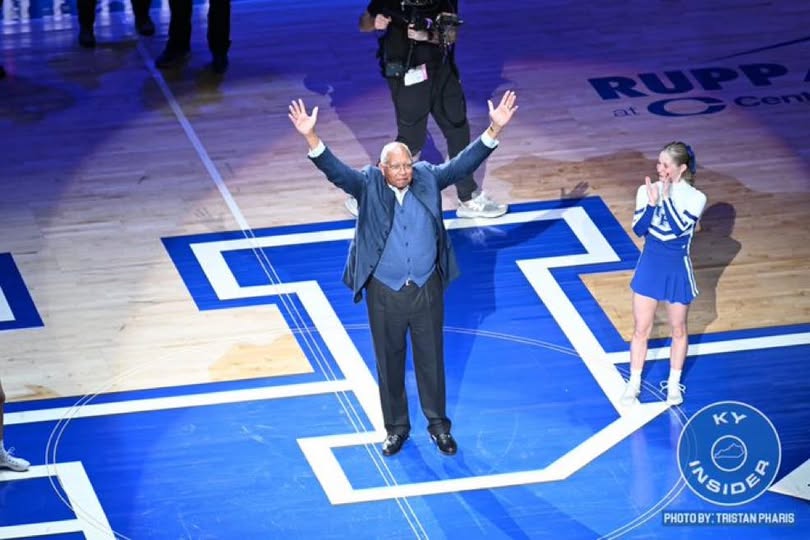Happy 74th birthday to former Kentucky head coach Tubby Smith, a man whose legacy is deeply etched into the fabric of college basketball. A champion, a trailblazer, and a mentor to countless young athletes, Smith remains one of the most respected figures to ever walk the sidelines at Rupp Arena. As the Big Blue Nation pauses to celebrate his life and career, it’s a moment to reflect on everything he accomplished, not only for Kentucky but for the game of basketball itself.
Born Orlando “Tubby” Smith on June 30, 1951, in Scotland, Maryland, Smith grew up in a large family where basketball became more than just a game—it was a passion, a purpose, and a path to a better life. He went on to play collegiate basketball at High Point College in North Carolina, laying the groundwork for what would become one of the most storied coaching careers in the sport.
Smith’s coaching journey began in the assistant ranks, including stops at Virginia Commonwealth, South Carolina, and Kentucky itself, where he later returned as head coach. He earned a reputation as a defensive strategist, a player’s coach, and a man of high integrity. But it was in 1997 that Smith’s name was etched permanently in Wildcat lore when he took over as head coach at the University of Kentucky—arguably the most pressure-packed job in college basketball.
In just his first season at the helm, Smith led the Wildcats to a national championship, capturing the 1998 NCAA title in thrilling fashion. That team, often referred to as the “Comeback Cats,” embodied the spirit of their coach: tough, poised under pressure, and unrelenting. Down double digits in multiple tournament games, including the Elite Eight against Duke and the championship game against Utah, Kentucky fought back each time. Smith’s calm demeanor and steady leadership proved crucial in those moments, and he became only the second African American head coach to win a Division I men’s basketball title.
That 1998 championship run remains one of the most celebrated in school history. Smith didn’t just win games; he won hearts. He embraced the Kentucky tradition, acknowledged its historical greatness, and brought his own quiet strength to a fanbase that demands excellence. Under his leadership, the Wildcats won five SEC regular season titles, five SEC tournament championships, and he was named SEC Coach of the Year three times.
Off the court, Tubby Smith was the epitome of class. Known for his humility and kindness, he treated everyone—from players to fans to reporters—with respect. His players often talk about the life lessons he taught them that extended far beyond the court: how to carry yourself with dignity, how to lead with character, and how to persevere through adversity. Those values defined his tenure and continue to resonate today.
Smith’s impact extended well beyond Kentucky. After leaving Lexington in 2007, he went on to coach at Minnesota, Texas Tech, Memphis, and eventually returned to High Point University, his alma mater, where he helped rebuild the program and guided young athletes both as a coach and a role model. Every stop was marked by the same consistency—Smith always emphasized defense, fundamentals, accountability, and class.
As a Black head coach in a sport and an era that offered few opportunities for people of color in top-tier programs, Tubby Smith broke barriers and opened doors. He not only excelled at one of the most prestigious programs in America—he did so with grace, strength, and a relentless commitment to excellence. His success sent a powerful message: character and competence can and should triumph over politics and prejudice.
The numbers speak for themselves—more than 600 career wins, numerous conference titles, a national championship, and countless lives touched. But Smith’s greatness lies in more than statistics. It’s in the way his players speak about him. It’s in the way Kentucky fans, even years after his departure, still chant his name and celebrate his legacy. It’s in the way he continues to influence the game, long after hanging up the whistle.
When Tubby Smith once called Kentucky “the No. 1 basketball program in the history of college basketball,” he said it with conviction—and with the authority of a man who helped keep it that way. He understood what it meant to sit in that chair, what it meant to represent that program, and what it took to sustain greatness. And in the process, he became a part of the program’s very soul.



